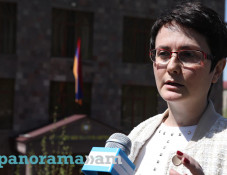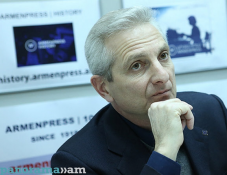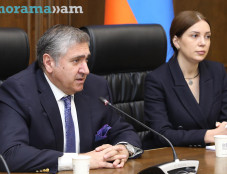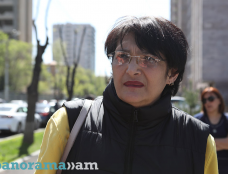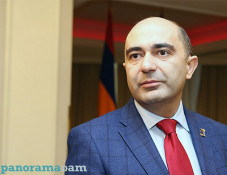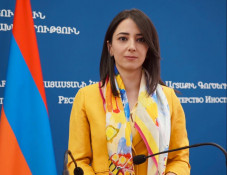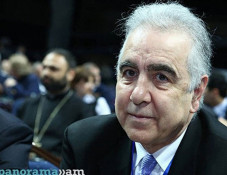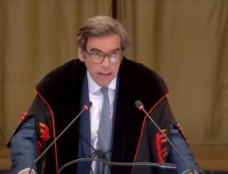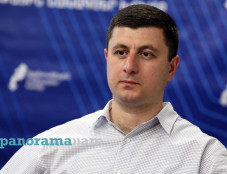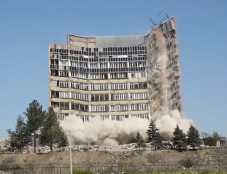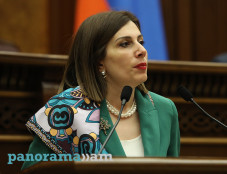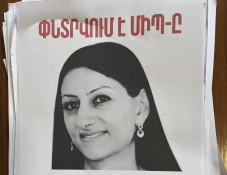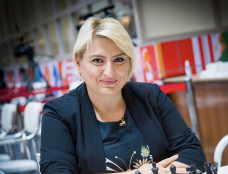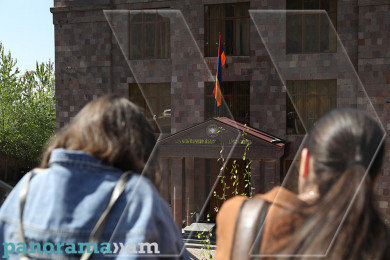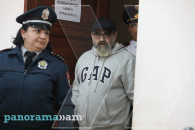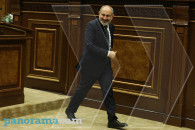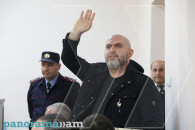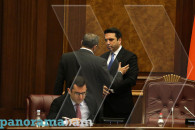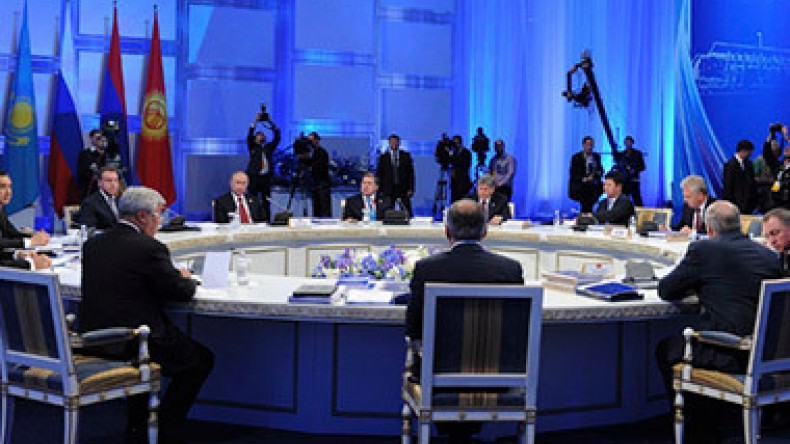
Berlin and Paris look East: How close are we to a Common Economic Space?
By Mahdi Darius Nazemroaya, RT
The Eurasian Economic Union is a reality that may end up costing the US its “perch” in Eurasia’s western periphery as a Common Economic Space is formed.
Former US national security advisor Zbigniew Brzezinski averred the following in 1997: “But if the middle space rebuffs the West, becomes an assertive single entity, and either gains control over the South or forms an alliance with the major Eastern actor, then America’s primacy in Eurasia shrinks dramatically. The same would be the case if the two major Eastern players were somehow to unite.”
This was a clear warning to the elites in the Washington Beltway and Wall Street. Camouflaged behind thinly veiled liberal and academic jargon, what Dr. Brzezinski was saying is that if the Russian Federation and the post-Soviet space manage to repulse or push back Western domination—meaning some combination of US and European Union tutelage —and manage to reorganize themselves within some type of confederacy or supranational bloc, either gaining influence in the Middle East and Central Asia or forms an alliance with China that Washington’s influence in Eurasia would be finished.
Everything that Brzezinski warned Washington to prevent is in motion. The Eurasian Economic Union (EEU)—simply called the Eurasian Union—has been formed by Armenia, Belarus, Kazakhstan and Russia. Kyrgyzstan will be acceding into the Eurasian Union as an EEU member, and Tajikistan is considering joining it too. The Kremlin and the EEU are actively looking for new partners too. Countries outside the post-Soviet space, such as Syria, are even interested in joining the EEU and the Russian-led bloc has already signed an important trade agreement with the Arab juggernaut Egypt. In Southeast Asia, negotiations with Hanoi have also been completed and Vietnam is scheduled next to sign an agreement with the EEU sometime in 2015.
The “Middle Space” is clearly resurgent. Turkey is looking towards a Eurasian alternative. The Turk Stream natural gas pipeline deal between Ankara and Moscow has put Washington and the European Commission on alert. Following the energy and trade agreements with Turkey, Russia renewed its military ties with Iran and has subsequently offered Tehran the Antey-2500—Tehran alongside Moscow was a key player that prevented an open Pentagon war from being launched on Syria in 2013. Russia’s Defense Minister Sergey Shoigu and his Iranian counterpart, Brigadier-General Dehghan, publicly signed agreements in Iran to renew Russo-Iranian military cooperation on January 20, 2015. From Egypt, Lebanon, and Syria to Yemen and Iraq, Russian influence is growing in the Middle East (i.e. “the South”).
In Latin America, from Argentina and Brazil to Nicaragua and Venezuela, Russian also influence is rising. The Latin American regional tour last year by Russian President Vladimir Putin and one this year by Shoigu have both included military cooperation talks and led to speculation about the erection of a network of Russian signals, naval and air bases in the area. Moreover, the increase in Russian influence and Washington’s declining weight inside Latin America have both been factors for Washington’s rapprochement with the Cubans. Moscow’s influence was present even on the eve of a historic visit to Cuba by a delegation from the US Congress when the Russian naval ship Viktor Leonov, an intelligence and signals vessel, docked in Havana on January 20, 2015.
Both the “Middle Space” and the “Middle Kingdom” (Zhongguo/China) joined forces long ago. This happened before the formation of the EEU or the EuroMaidan coup in Ukraine. Moscow and part of the post-Soviet space began building an alliance with China (i.e. “the major Eastern actor”) at the bilateral or multilateral levels in the late-1990s. This has begun blossoming. The Shanghai Cooperation Organization (SCO), which was formed out of the Shanghai Five in 2001, is proof of this. The mega Sino-Russian natural gas deal is merely the fruits of this alliance and the coming together of the “Middle Space” and the “Middle Kingdom.”
Preventing Eurasian integration: Attempts to cordon the “Middle Space”
Without Russia, Europe is incomplete by any means or calculation. The Russia Federation is in both demographic and territorial terms the largest European country. There is no question about it either that Moscow is a major political, socioeconomic and cultural force in European affairs that cannot be overlooked from the Baltic Sea to the Balkans and the Black Sea.
Economically, Russia is an important export and import market for the EU and its members. This is why the EU is suffering from the US-engineered economic sanctions that have been imposed against Russia as a form of economic warfare. It is in the context of Russia’s economic importance to the economies of the EU that US Vice-President Joseph Biden candidly even admitted during a lecture at the John F. Kennedy School of Government at Harvard University that Washington had to pressure the EU into accepting the anti-Russian sanctions regime on October 2, 2014.
Brzezinski’s warning has another angle to it too, which involves Washington’s EU and NATO partners. “Finally, any ejection of America by its Western partners from its perch on the western periphery would automatically spell the end of America’s participation in the game on the Eurasian chessboard, even though that would probably also mean the eventual subordination of the western extremity to a revived player occupying the middle space,” he warns. What the former US official means is that if the US-aligned major European powers (i.e. France and Germany, or the EU collectively) reject Washington’s influence (maybe even withdraw from NATO), the US would lose its western perch in Eurasia. Brzezinski warns that an assertive Russia—probably alongside its Commonwealth of Independent States (CIS) allies—would instead replace US influence.
The reason that unity in the post-Soviet space and any political and economic convergences between the EU and the “Middle Space” are a threat to Washington can be analyzed by using the standpoint and lexicon of the Russian Foreign Ministry. Under 32 Smolenskaya-Sennaya Square’s framework, Eurasia is partitioned into three zones or regions: the Euro-Atlantic (western periphery), Euro-Asia (central area), and the Asia-Pacific (eastern periphery).Hence, the explanation for the term “Middle Space” used by Brzezinski to describe the post-Soviet space.
In organic terms, it is the central Euro-Asia region that can unite and integrate both the western and eastern Eurasian peripheries. Russia and the EEU want to ultimately establish a free trade zone encompassing the entire EU and EEU — a “Common Economic Space.” In the words of the Russian Foreign Ministry, the EEU “is designed to serve as an effective link between Europe and the Asia-Pacific region.”
It is Russia and the EEUacting as a bridge between the twoEurasian peripheries that threatens Washington’s plans to integrate the Euro-Atlantic and Asia-Pacific zones with itself.
The Common Economic space vs. the TTIP and the TPP
The US wants to be the center of gravity in Eurasia. It fears that the EU could eventually gravitate towards the “Middle Space” and integrate with Russia and the EEU.
The tensions that Washington is deliberately stoking in Europe are an attempt to estrange the EU from Moscow as a means of allowing the continuation of US empire-building in Eurasia — this is Washington’s version of a modern “Great Game.” Even Brzezinski’s warning about the resurgence of the “Middle Space” (i.e., Russia and the post-Soviet space) is about the area unifying to become “an assertive single entity” and not even an “aggressive” entity that is a military threat to world peace.
Washington wants the western periphery (Euro-Atlantic) and eastern periphery (Asia-Pacific) to integrate with it through the Trans-Atlantic and Trade Investment Partnership (TTIP) and the Trans-Pacific Partnership (TPP). The EEU and any thoughts of a Common Economic Space are a threat to the consolidation and merger of these regions with the US. This is why the US cannot tolerate an independent and assertive “Middle Space” or, for that matter, an independent and assertive “Middle Kingdom.” This is why both Russia and China are being demonized and targeted: Moscow is being target via the instability the US has helped author in Ukraine (as well as through a new wave of Russophobia) whereas Beijing is being targeted through Washington’s so-called military “Pivot to Asia.” This has taken place while the US has destabilized the Middle East (i.e. the South).
While Brussels had its own reasons for accelerating TTIP negotiations with Washington, US fears of Eurasian integration hastened the sense of urgency Washington felt in concluding TTIP negotiations to solidify its influence over the EU. The sanctions (economic warfare) against the Russian economy, the drop in energy prices prompted by the flooding of oil markets, and the drop in the value of the Russian ruble are part of this Rubik’s Cube too.
The Common Economic Space is an aspiration for a Eurasian-wide trade zone. As an ambition Moscow and its EEU partners see the Common Economic Space as a framework to gradually incorporate other Eurasian regions together. Russian Deputy Foreign Minister Vasily Nebenzya confirmed all this to the Tass news agency in an interview published on December 31, 2014. Nebenzya told Tass that Moscow views the long-term goal of EU-EEU cooperation “as the basis of a common economic space from the Atlantic to the Pacific” in Eurasia.
Not only would any trade agreement between the EU and the EEU be the basis for the Common Economic Space, it would be the embryo for a broader Eurasian-wide trade zone that has the potential to include the Central European Free Trade Agreement (CEFTA), the South Asian Association for Regional Cooperation (SAARC), and the Association of Southeast Asian Nations (ASEAN). A compartmentalized supranational bloc could emerge.
From a Russian perspective, instead of prioritizing the TTIP with the US, it makes more sense for the EU to look at creating the framework for cooperation with the EEU. This sentiment has been reflected by Moscow’s ambassador to the EU, Vladimir Chizhov, who told the EU Observer in an interview published on January 2 that Moscow wanted to start contacts between the EU and EEU as soon as possible and that the EU sanctions on Russia should not prevent dialogue and contact between the two blocs. “We might think of a free trade zone encompassing all of the interested parties in Eurasia,” Ambassador Chizhov explained as he described the “Russia-led bloc as a better partner for the EU than the US” during the interview. As Chizhov rhetorically asks, the question that the EU needs to think over is thus: “Do you believe it is wise to spend so much political energy on a free trade zone with the USA while you have more natural partners at your side, closer to home?”
Is the EU waking up?
Ambassador Chizov’s question has not fallen on deaf ears. The same questions are being asked in various EU capitals. The leaders of EU powers are realizing that the US is instigating a conflict with the Russians that Washington wants them to fight and waste resources on that would weaken the EU and Moscow to Washington’s benefit. Smaller EU powers have been vocal about this while the larger ones have been slower in realizing it.
Greece refused to fall in line when the EU released a statement blaming Russia for the eruption of the fighting in the East Ukrainian city of Mariupol on January 24, 2015. Athens refused to blame Moscow and complained that the EU acted undemocratically by not even following its own procedures by asking for the consent of all members before releasing a statement on behalf of the collective. Instead of confrontation with Russia, the Greek government wants closer ties with Moscow.
President Putin’s February 2015 visit to Budapest ruffled feathers in the EU and US. Hungary has been vocal in itsopposition to the EU sanctions against Russia. This has outraged some in the Washington Beltway and European Commission. A diplomatic row even started between Budapest and Washington when US Senator John McCain called Hungarian Prime Minister Viktor Orban a “neo-fascist dictator” because Hungary refused to cut ties with Russia in 2014.
While there has been speculation that Hungary is being used as the “good cop” to bargain with Moscow, the US has even gone as far as banning members of the Hungarian government from entering US territory on October 20, 2014. Although the EU would react collectively if any country slapped diplomatic sanctions on one of its members, Brussels effectively did not respond to Washington.
Cypriot Present Nicos Anastasiades has joined the revolt against Brussels and Washington by visiting Moscow on February 25, 2015. Nicosia and Moscow even signed an agreement allowing the Russian Navy to use Cypriot ports.
Germany and France—once mocked as “old Europe” by Pentagon honcho Donald Rumsfeld— are having second thoughts too. Franco-German differences with the US emerged at the Munich Security Conference at the Bayerischer Hof Hotel when German Chancellor Angela Merkel rebuffed members of the US and British delegations about a military solution for Ukraine. In this context, Paris and Berlin rehashed the Kremlin’s original peace proposal for East Ukraine and began diplomatic talks in Moscow.
Merkel casually also mentioned she supported a Common Economic Space too: a sign of things to come?
Newsfeed
Videos





